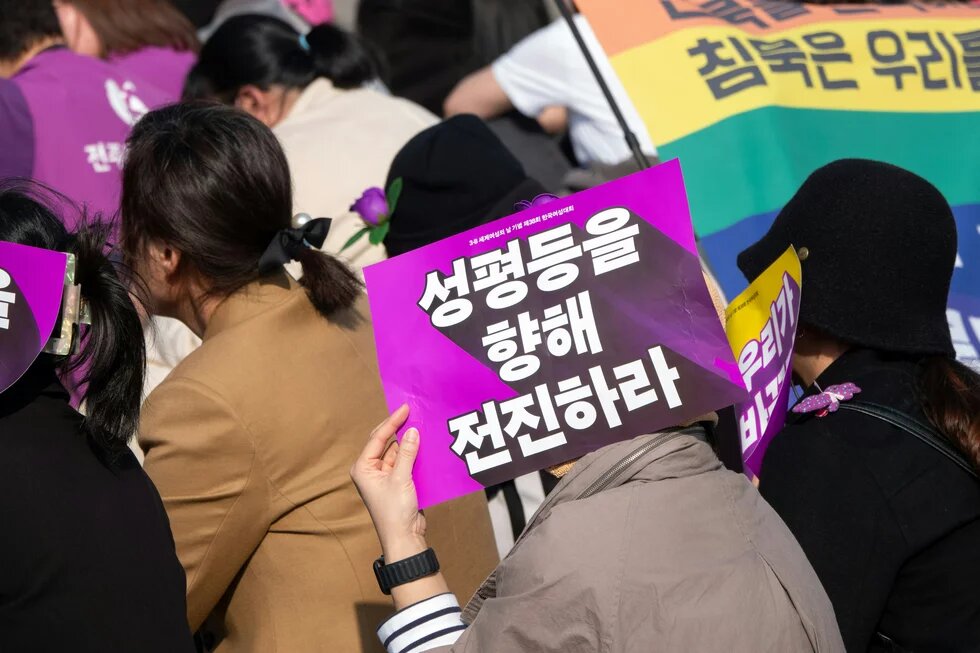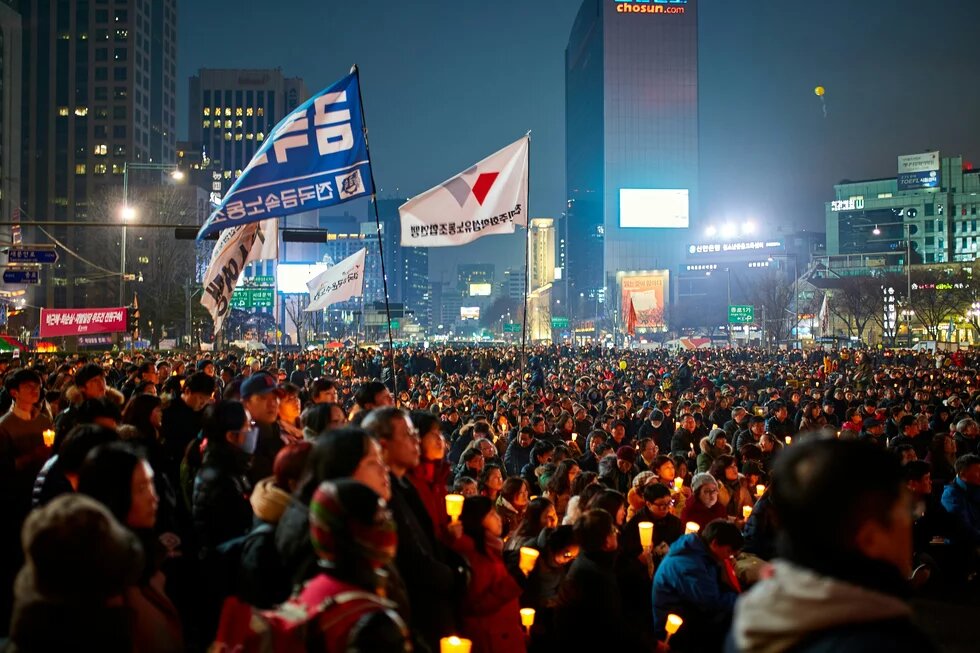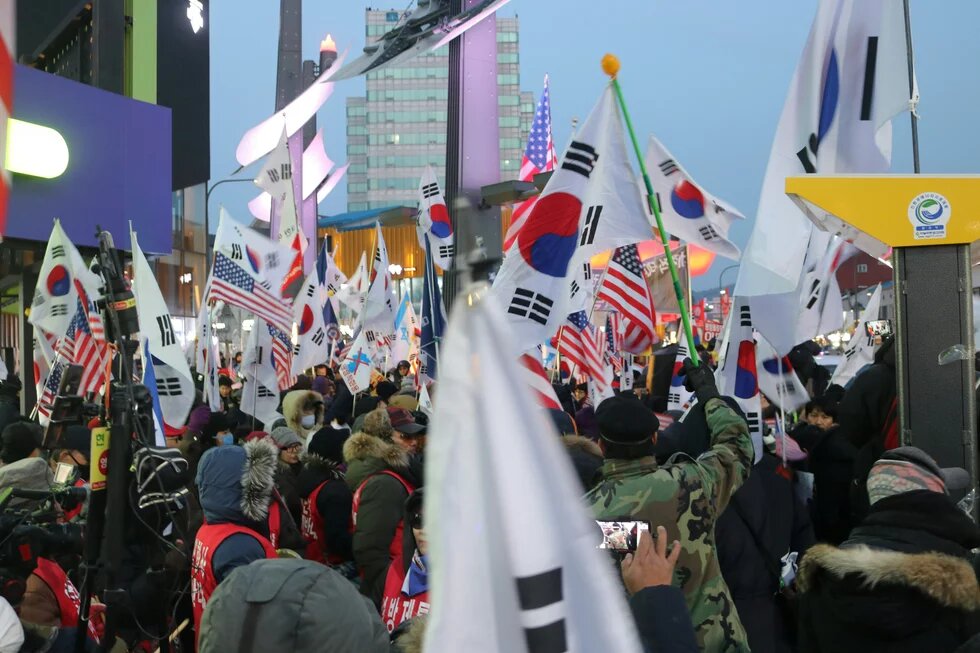
On December 3rd, 2024, former South Korean president Yoon Suk-yeol declared martial law on the basis to protect national stability from “antistate actors.” This was quickly overturned by the National Assembly and eleven days later the National Assembly voted to impeach Yoon. After months of investigation, the Constitutional Court unanimously voted to accept the impeachment of Yoon, triggering the snap elections to be held on June 5, 2025. The Heinrich Boll Foundation invited Professor Sook Jong Lee and Professor Woo Chang Kang, distinguished experts on South Korean politics, to discuss the significance and implications of the South Korean elections.

Result of the Elections: Who Voted for Who?
Lee Jae-myung of the progressive Democratic emerged vicotrius in the 2025 presidential election, securing 49.42% of the total vote. His main opponent, Kim Moon-soo of the conservative People Power Party (PPP) received 41.15%. This election was particularly significant with a 79.4% turnout rate, the highest in 28 years. Lee set a new record of total votes received, garnering a total or 17,287,514 votes which is about 1.14 million more votes that Yoon received in 2022. However, it is important to note that despite the high voter turnout Lee was only able to receive a million more votes compared to his first presidential campaign in 2022 and was also unable to surpass the 50% vote share that were previously forecasted. To understand this outcome, it is important to examine the coter base of the PPP and the minor Reform Party.
The 2025 election served in part as a referendum on the impeachment of President Yoon and the issue or martial law. According to public opinion polls about 40% of people opposed the impeachment of Yoon and this mirrors the 41.15% of vote shares that Kim received. However, this does not mean that all Kim supporters opposed the impeachment of Yoon. Some may have supported Kim out of concern over the Democratic Party’s dominant postion, which now holds 56.42% of the National Assembly (Korea’s legislative branch) compared to the PPP’s 36.15%. Despite these concerns, the PPP’s inability or unwillingness to fully distance itself from Yoon could have driven some conservative voters to Lee Jun-seok of the Reform Party.
The Reform Party came in third winning 8.34% of the vote. The main demographic of voters were men in their 20s and 30s as about 37% of men in their 20s and 25% of men in their 30s voted for Lee Jun-seok. Although Lee Jun-seok is known for his anti-feminist rhetoric, during the impeachment process, he held a very hard stance against Yoon. Therefore, he was positioned as a conservative but pro-impeachment candidate. Although it is hard to say for sure, this could have attracted voters who were conservative but deeply opposed to Yoon. This could also explain why about 10% of women in their 20s voted for Lee (Compared to 2022 the women in the 20s vote share for the Democratic Party remained the same but the vote share in support for the PPP fell from 33.8% to 25.3%).
Middle Power Korea: What to look out for in Foreign Policy
Middle powermanship has been an integral part of Korea’s foreign policy strategy since the Lee Myung-bak administration. In terms of economic, military, cultural and diplomatic influence, South Korea occupies a middle power position. According to the World Bank data Korea ranks 13th in nominal GDP, 26th in purchasing power parity and 36th in GDP per capita. Militarily, South Korea ranks 5th in the Global Firepower Index and is the 13th largest and is the 13th largest official development assistance donor among the 32 OECD countries. South Korea has also displayed exemplary middle power behavior by upholding international law, participating in global forums and aligning with the liberal West on key international issues. However, for a middle power to play a constructive mediating role, a relatively stable international environment is crucial. The rise in geopolitical rivalries has increasingly constrained this capacity. It is interesting to note that former President Yoon wanted to become a stronger power evident in his pivot to the Global South, but it is too early to define President Lee’s strategic direction.
Given that the current presidential election was a snap election, Lee’s campaign focused mostly on domestic issues. Nevertheless, his foreign policy strategy can be forecasted based on the Democratic Party’s criticism of the previous administration and Lee’s remarks in his campaign and inauguration speech.
- ROK-US Relations: Lee has claimed that he will maintain close ties with the US. President Trump’s America first policy might create tensions due to increased tariffs and rumors about the partial relocation of USFK troops to the Indo pacific. However, Lee should first focus on concluding the tariff negotiations with the US.
- ROK-DPRK Relations: Lee has emphasized a peaceful Korean peninsula where both Koreas coexist while maintaining an ironclad alliance with the US. It is difficult to say how this will fan out especially if we take 2018 Trump’s top down diplomacy strategy and DPRK’s current strong relationship with Russia into consideration.
- ROK-China Relations: The Democratic Party has criticized Yoon for neglecting China and focusing too heavily on the US and Japan. Therefore it is likely that President Lee will improve ties with China and the possible attendance of President Xi at the upcoming APEC Summit in Korea could serve as a diplomatic opportunity.
- ROK-Japan Relations: The progressive party is traditionally critical of Japan and President Lee has criticized Japan. However throughout his campaign and during his inauguration speech Lee has mentioned several times that he will maintain good relations with Japan as the US-ROK-Japan trilateral partnership is crucial for Korea’s National interest.
At the current stage it is difficult to map out a concrete foreign policy agenda as it was not a central component of Lee’s campaign. Nonetheless, the international order is under considerable strain, with the international system facing unprecedented challenges. In this context, it is more important now than ever for European nations to collaborate closely with countries in the Asia-Pacific region to form a coalition based on democratic values, human rights and rule of law.
As President Lee begins his term, how he addresses evolving challenges such as deepening DPRK-Russia relations, the upcoming elections in Japan and rising tensions in the Taiwan Strait will be crucial in shaping South Korea’s foreign policy.
*This article is a summary of the webinar titled “South Korea After the Elections: Geopolitical Dynamics and Domestic Course-Setting” available at https://www.youtube.com/live/0CzHqR6bT8I
